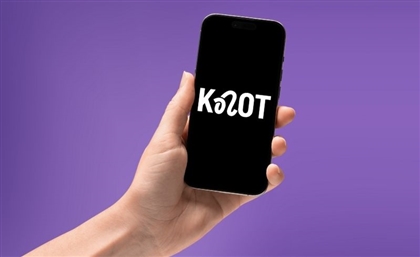How One Couple is Trying to Revive the Egyptian Cotton Industry with their Fashion Line
We speak to the founders - and married couple - behind Egyptian fashion label CottonBall, who aim to resuscitate the local cotton industry and carve out a distinct space in the international apparel game for the exalted material.
“If we’re the home of Egyptian cotton, then why is there no homegrown local apparel brand that actually truly represents that – locally or internationally?” That is the fundamental question that dawned on Ahmed Habib and Zena Sallam in 2012, right before they decided to create their company, CottonBall, a local fashion brand that revolves entirely around – what else? – Egyptian cotton. Since then, the founding partners – and married couple – have been on a path to carve out a distinct space for the exalted material. “Until now, no one owns a brand that signifies and communicates the value of Egyptian cotton,” Habib, one half of the entrepreneurial duo, says simply, “There was a gap in the market that we ourselves couldn’t see in the beginning.”
While the revered fabric has long been considered synonymous with luxury and high quality, the essential irony lies in the fact that most high end products which boast a ‘100% Egyptian cotton’ label are in fact, produced and created outside of Egypt, largely by non-Egyptian brands, accompanied by a hefty price tag – and often re-imported into Egypt at an even more bloated cost.
“The other thing we noticed too is that in terms of quality, it was either really bad quality sold locally, or really expensive quality sold internationally – as in, you're going to have to pay 80 dollars for a t-shirt. But there was no one in the middle producing high quality Egyptian cotton apparel at reasonable prices,” Habib elaborates.
At its core, the vast discrepancy between cost and quality when it comes to Egyptian cotton is a largely economic one; most of the raw cotton is shipped abroad. “Egypt was, and still is, exporting the majority of our really high quality raw cotton to be produced abroad; the quality they want to export is much higher than what’s kept local,” explains Sallam. Foreign brands eagerly buy the raw product in bulk from Egypt and manufacture it overseas – in countries such as India – where it is more cost effective, more efficient, and generally of superior quality to its local counterpart. “That changes the price point completely; it becomes cheaper to buy Egyptian cotton woven in India and imported back into the country, than to buy Egyptian cotton woven here,” she continues.

That fact becomes additionally detrimental when you take in the potential of the raw product. “The Egyptian cotton industry makes a decent amount of money off what foreign brands come in and buy, but it’s nowhere near the margin which the foreign brand is selling for,” adds Habib. “So if we can grow a brand that’s made locally and Egyptian produced – with quality that becomes recognised globally, we believe we can have a significant impact not only on the local economy but also on the Egyptian cotton production.”
It's cheaper to buy Egyptian cotton woven in India and imported back into the country, than to buy Egyptian cotton woven here.
When the CottonBall founders first began to establish their brand in 2013, they did not manufacture; they began with selling ready-made garments, designed by them – “I basically went around with a suitcase to my friends' houses and was like 'hey wanna buy a t-shirt?'” Sallam laughs. But as the brand developed, they quickly realised if they wanted to grow in the way they had envisioned – creating a consistently high quality, entirely locally made product, one which would eventually stretch beyond their own national borders – they had to go to the source. “To make sure we were delivering a consistent product, we had to control everything from raw materials to finished goods,” explains Habib, “So around 2015, we started getting into the actual supply chain of cotton production.”

Even taking in the slightly elevated cost of manufacturing a t-shirt entirely on Egyptian soil, the final result of a 100% Egyptian cotton CottonBall product is a significantly cheaper final product than one sold or imported from abroad, largely because it’s devoid of the swollen profit margin a ‘luxury’ brand adds to accompany its brand name. CottonBall will now sell a basic t-shirt for 185EGP ($10); a similar t-shirt for the same price but far lower quality (polyblend cotton) can be found at high street stores such as H&M, and a similar t-shirt of the same quality but for a radically elevated cost can be found at more high end brands.
Strangely enough, however, one of the biggest obstacles CottonBall faced when they kick-started their brand was a deadlocked mentality – from Egyptians themselves. “We had so much trouble at first with the idea of being a local brand. It was a real issue. Foreigners who would walk into our store in Cairo would be amazed with the Egyptian cotton. All the Egyptians would walk out. They would just walk out,” Sallam deadpans, “They'd be like ‘oh this is local? I could buy it elsewhere for 50 pounds’.”
They said ‘look, if you want to start selling in Cairo, unfortunately you're going to have to take the word Egyptian away.
Initially, Sallam and Habib had wanted to name the brand Egyptian CottonBall; “because that’s what it is and if we take it abroad with 'made in Egypt' or 'Egyptian cotton', that's what's luxurious about it,” argues Sallam. However, they were advised against it by a marketing agency who told them it would negatively impact their sales locally if they included the word Egyptian in their name. “They said ‘look, if you want to start selling in Cairo, unfortunately you're going to have to take the word Egyptian away.’ Because Egyptians at that point had this idea that when something is local, then it immediately signifies something of lower quality therefore it needs to be cheap,” Sallam continues.

Eventually, Habib and Sallam acquiesced and cropped to name to only CottonBall so as not to sabotage their brand before it even started, but their customers still had massive reservations about buying a locally made product that was not sold for a wholly slashed price. “They would say that they could go buy a 'brand' because something local is not luxurious, expensive, nor does it have the prestige of having some sort of a name tag,” Sallam tells.
Egyptians sell their country too cheap but it's our generation's absolute responsibility to build.
This mindset, that proved to be one of CottonBall key problems at its inception, began to reverse itself after the devaluation of the Egyptian pound in 2016 and a paradigm shift of sorts took place. As the Egyptian pound dropped/sank drastically in value, two things occurred. Firstly local production began to increase as many items stopped entering the country due to elevated prices; those which did became so expensive that Egyptians turned to more reasonable priced local alternatives. And secondly, Egyptians began to take more of a vested interest, feel a more pronounced pride in local, homegrown brands. “The only advantage to the dollar spiking is that now, people want to support Egyptian brands. A year and a half ago people would not want to buy my t-shirt because they thought 125 pounds is too much,” says Sallam.

As the CottonBall steadily begins to build its presence in Egypt, the brand is making the jump from small to medium business in a relatively short amount of time. Not only is their retail taking off, but b2b has proven to be a huge market as local companies acknowledge that they’ve found a locally produced brand that is consistent, high quality, and reasonable priced, a trifecta often lacking in local production.
But this is just the beginning for CottonBall as they set their sights on global sartorial domination with plans to start selling abroad in 2018. “Egyptians sell their country too cheap but it's our generation's absolute responsibility to build. And we want to build a brand that owns the domain of Egyptian cotton and take it global and to have our brand story be proud to be Egyptian made.”
You can check out their Facebook page here or follow them on Instagram @CottonBall_official.
This article was originally published by Scene Arabia.
Shoot by @MO4Network's MO4Productions.
Photography by Amr Medhat
Videography by Mohamed Tamer
Trending This Month
-
Jan 19, 2026






















